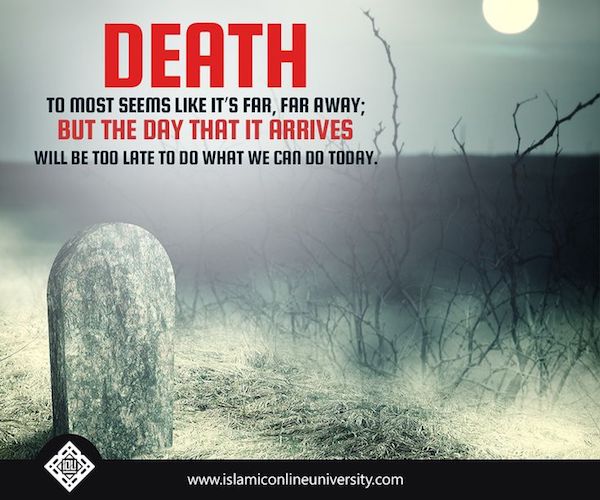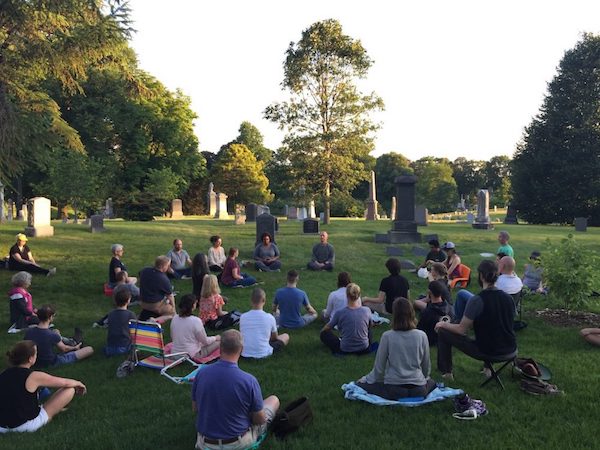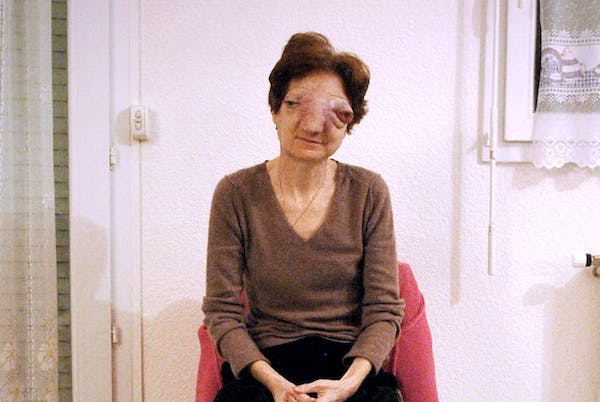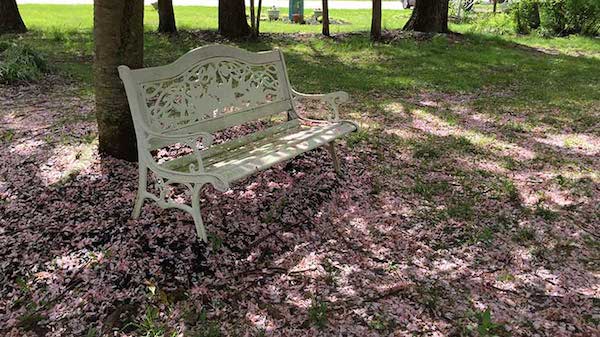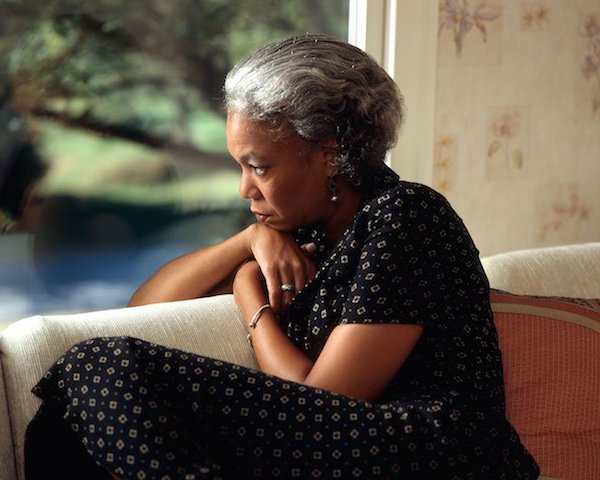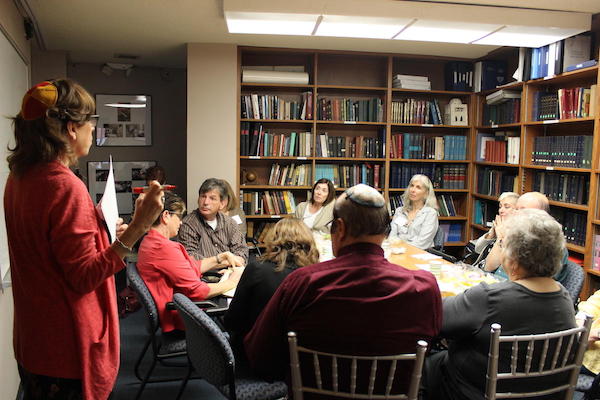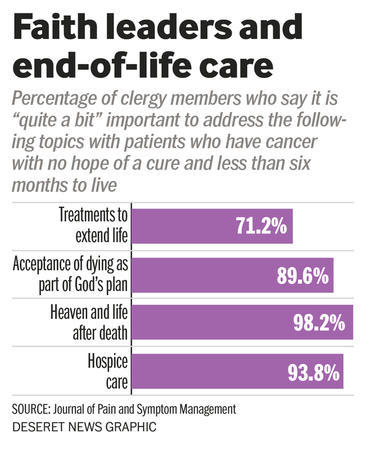I stared at her blood results for a few seconds too long. I felt crushed, my shoulders sagged and I realised that my face had given it all away.
[T]he patient couldn’t speak now, but she motioned to my pen. I handed it to her with her own notes – a mistake in retrospect. I need not have worried as she was in no fit state to read. She scribbled on words that broke my heart.
“Doctor, I’m dying aren’t I?”
I whispered back “Yes.”
She nodded; a large tear fell down the side of her face. I tried hard to stop my own tears falling too.
I wasn’t emotional because she was dying, as a doctor you unfortunately get used to death very quickly. No, I was upset because of how she was dying. She was in pain, she was struggling to take breaths, and her family had not yet arrived in their own car as the ambulance had managed to cut through traffic and they hadn’t.
I held her hand as her breaths became shallower, only stepping away when her husband and children finally made it to her bedside just as she slipped away.
It’s difficult to argue that this was a good death. This lady had spent her last moments surrounded by strangers, in a cold and uncomfortable emergency room bed and with the cacophony of hospital equipment as the last sounds in her ears. Her relatives had to give rushed goodbyes.
A bad death
Scenes like this play out every single minute of every single day across the world. In fact, for something we’ve been doing since the beginning of time and despite all the advancements in medical science – the human race is remarkably bad at dying.
The odds are that most of us reading this article will pass away in a manner that leaves much to be desired. [1] We may be taken to a hospital even though there was little to no benefit in doing so, passing away in an ambulance or an emergency room with tubes stuck down our throats and needles in our arms while medics surround us decide what the next move will be and how they’ll break the news to our shocked families, even if all the signs had been pointing towards this for months or even years.
Death is difficult enough without the often-preventable complications that make it more painful and stressful than it needs to be. Even though we don’t talk about it much, there is such a thing as having a “good death.” [2]
What is a “good death”?
A “good death” – the very term seems like the ultimate oxymoron. After all, what can be good about death? It’s the ultimate in bad news. In fact, on a scale of bad things that can happen to someone, death seems likely to be the worst.
Yet, as anyone who has come across death on a regular basis will tell you, there are such things as good and bad deaths. An entire medical speciality called Palliative Care was created to facilitate the former.
From an Islamic perspective a good death is one in which the person dies with Allah being pleased with him or her, or engaged in an action or at a time that is considered pious. [3], [4] While we can never know who is in possession of divine favour, we do know that the Prophet mentioned certain times, modes and places of deaths as having special significance. For example, I remember vividly recalling that family members of Hujjaj, who died in the horrific tunnel collapse of 1990, were comforted by the fact that their relatives died on holy land whilst on the pilgrimage.
However, the commonly held Muslim view of a good death is lacking. It almost entirely revolves around the unknowable relationship between the deceased and Allah, while neglecting more practical temporal aspects. For the purposes of this essay, I want to explore the practical side of a “good death” and show that this is actually part of a neglected Prophetic tradition that we can and should revive.
A good death is described as any passing in which an individual dies as peacefully as possible, in accordance with their wishes and according to their own ethical, cultural or religious standards. [5] This includes dying free of pain, in a location of their preference (usually divided into one of the 3 H’s – home, hospital or hospice) and surrounded by their loved ones rather than medical and nursing staff.
It doesn’t sound complicated does it?
Yet, every single day, the majority of people die in just the opposite way.
So, how do we achieve a good death?
I went looking for inspiration from Islamic history and found answers hidden in plain sight. The clues are scattered throughout the life of the Prophet himself, like scattered pearls of wisdom waiting for us to put them together into a coherent whole.
You can divide the steps required into 6 steps:
-
Thinking and talking about death
There are many ways of achieving a good death, but they all have the same first step. We need to be prepared to think about it, but in a way that empowers rather than paralyzes us. We need to make it less of a taboo.
The Prophet was the master of this. He used to think about death often and asked us to do the same, but was never accused of being morbid. He taught us, “Remember often, the destroyer of pleasures.” [6]
By bringing talking about death back into polite conversation and into the family life, we remove it from being solely the domain of the mosque and imam. It may mean taking the kids to a funeral or talking to your parents about the funeral arrangements for a recently departed grandparent. Whatever entry point you use, remembering death will help you plan about it.
-
The warning shot
A warning shot is the first difficult discussion that people have about an impending death. This is when bad news is delivered in a step-wise process so that the impact is less severe on those affected.
Doctors are trained to do this by lowering the tone of their voice, getting the patient worried by asking if they would like to have someone there with them and to generally appear gravely concerned. We then impart the warning shot – usually something as simple as “I’m afraid I have bad news” – and give time for the patient to absorb this before delivering the bad news. [7]
This occurred quite obviously in retrospect with Allah giving the Prophet several warning shots with increasing clarity that his life was drawing to a close. First, Jibreel went through the Quran with the Prophet twice instead of the usual once during their Ramadan reviews. Beyond this, Allah revealed that religion had been “perfected” thereby making the role of the Prophet complete.
In turn, the Prophet passed on these warning shots to us, his community at various opportunities including at Hajj Al Wida and in his khutbas at Masjid Nabawi.
Warning shots are important. They allow us to prepare for the worst-case scenario, rather than live in hope and find ourselves woefully unprepared when the time comes.
-
Choosing where and how you would like to be cared for in your final illness
The location where one dies is obviously not something everyone has the luxury of choosing. However, for most natural deaths, this is something important and despite most people preferring to die at home, this is not achieved.
The sad truth is that, again, we will spend more time thinking about the hotel room that we stayed in 5 nights in during a holiday years ago than where we would like to see out our final days.
The Prophet was concerned about where he would be during his final illness. He asked rhetorically, “Where shall I stay tomorrow?” multiple times until his wives understood that he wanted to choose where he wanted to stay rather than switching rooms every evening as was his usual custom. He chose for himself the room of Aisha [8]
A good death isn’t necessarily a pain free one, but it certainly is one in which unnecessary suffering is avoided if the patient wishes. Again, the medical profession has advanced far enough that no one should suffer unduly in his or her final moments, but because patients are unaware as to what is available to them, they continue to suffer. [9]
-
How should your funeral be conducted?
The rulings on Muslim funerals are fairly specific. So specific, in fact, that we make the mistake of thinking that there isn’t room for personalisation. There clearly is, even if it is limited. Everything from choosing whom you would like to lead your Janazah prayer, at which mosque and who should lower you into the ground can often give people a sense of peace and familiarity with a daunting reality.
The Prophet did the same. He had asked that his body be washed using water from the well of Ghars, presumably because he liked the sweet taste of the water there. Amr ibn Al As asked to be buried with fragments of the Prophets nails in his mouth and under his eyelids. Ottoman Sultans would occasionally be buried with pieces of the Kaaba kiswa on them.
As long as it remains within the boundaries of accepted tradition, it can be comforting to know that you had some say in how your funeral would be conducted.
-
Where should you be buried?
This is an important decision and for most of us, it won’t matter much because – well, we won’t have to worry about it. However, there is a strong indication that where someone is buried does matter almost as much as where they lived in life. Many a necropolis has sprung up around the tomb of a pious man or a companion of the Prophet like Jannat Al Mualla in Makkah, Eyup Sultan in Istanbul and Bab Al Saghir in Damascus. [10]
It was the cause of much consternation to the sahaaba that they did not know where to bury the Prophet . The relief that was felt by all, when it was discovered that the Prophet had mentioned to Abu Bakr that all Messengers are buried where they die, is palpable. Take a moment to reflect on that conversation. In a mark of how difficult the conversation is, even the Prophet (SAW) didn’t directly tell Abu Bakr where he would like to be buried, but instead made a general statement about all Prophets. This way, he got his point across to his close friend but minimised the heartache.
-
How should your estate be divided after death?
Inheritance laws in Islam are strictly governed and regulated leaving limited scope for people to go wrong. But unfortunately, most Muslims living in non-Muslim countries, do not have formal wills written up. This means that their estates are at risk of being divided according to the law of the land they die in.
The Prophet was concerned about what would happen to his estate after he died, but his estate was not just the physical objects he left behind. It included the spiritual legacy of the Islamic faith. Therefore, he repeatedly mentioned for Muslims to guard the prayer and to look after the ladies of their house. [11] Not only that, it was clear that he went as far as he could towards nominating Abu Bakr to lead us after his death without actually commanding it.
While you should definitely prepare a will for your physical possessions, also consider your legacy beyond that. Who should educate your children? What advice do we have for them when they grow up? What should happen to our collection of books? Which charities would you like some of your endowments to go to and for what cause?
Your life is so much more than just the money and materials that gets divided up after you die. If you are lucky, those who survive you may try and keep your legacy alive. They would find it much easier if you gave them some directions beforehand.
Conclusion
In the end, the best way to attain a good death is to live a good life – a. A life that is lived in the service of others for the sake of Allah, a life in which there is real meaning and purpose and a life in which death is remembered.
As a Muslim, I know that a good death is one in which Allah is pleased with the person dying. As a doctor, I know a good death is one in which the patient is comfortable and surrounded by their family, not me. As a human being, I know a good death is one that comes after having added value to the lives of my fellow human beings. These are not mutually exclusive and the life of the Prophet (SAW) gives evidence for being able to combine all three.
As the old poem goes, we all have a rendezvous with death. Why not make it a good one?
Complete Article HERE!

